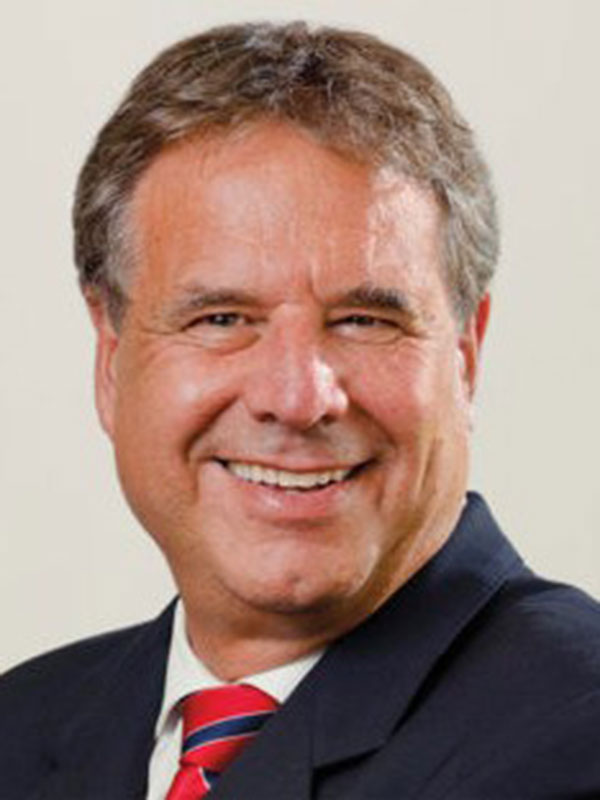Health Breakthrough Discoveries Need Investment in the Bold Ideas of Young Researchers
Disclaimer: The French version of this editorial has been auto-translated and has not been approved by the author.

Catharine Whiteside
Chair
Banting Discovery Foundation Board

Alain Beaudet
Vice-Chair
Banting Discovery Foundation Board
Innovation that leads to breakthrough discoveries for improving health requires deliberate investment in our most promising young researchers. The discovery of insulin in Canada over 100 years ago has saved millions of lives. The outcome of this amazing research by Frederick Banting, a young investigator with a bold idea, was rapidly developed into a life-saving product with the right strategic scientific and industry collaboration. It was Canada’s gift to the world. Today, there are so many forms of debilitating illness, like arthritis, heart disease, cancer, not to mention pandemics, for which prevention and cures have yet to be discovered. How can we fast-track the creative research and commercialization necessary for these discoveries? Who will lead the charge in breakthroughs for prevention and cures of our most urgent health challenges?
The bold ideas, passion, and commitment needed for discoveries like insulin are in the DNA of our young Canadian health and biomedical researchers. After years of rigorous training, they emerge ready to start their careers of discovery. But first, they must compete for limited faculty positions at our universities and institutes. Then, they must balance teaching and administration while establishing their research programs. The toughest challenge is securing the funds to launch their independent research programs. Like Banting, who relentlessly pursued funding until his third attempt was successful with J.J.R. Macleod, Chair of Physiology at the University of Toronto, every young Canadian researcher struggles to get their first grant.
Each year at the Canadian Institutes of Health Research (CIHR), only approximately 17% of projects secure funding, underscoring the formidable challenges for even seasoned investigators. For early career researchers, success rates has plummeted to as low as 14% over the past decade. (1) Despite the recent infusion of CIHR funds announced in the 2024 budget and its initiatives to adjust scoring criteria favorably towards young researchers, the anticipated improvement in funding rates remains incremental for our emerging scientific talent.
Canadian health charities help fill some of this gap. First grants are often from Heart & Stroke, the Canadian Cancer Society, Diabetes Canada, the Kidney Foundation of Canada and others that rely on philanthropic support. But this competitive funding is often highly focused and usually risk adverse.
Wherein lies the fundamental problem – bold ideas that lead to breakthrough discovery come with risk. But what granting agency is willing to fund risk, especially for projects proposed by early career researchers?
In the UK, the Wellcome Trust has established a major funding competition solely for early career health and biomedical researchers. (2) In the USA, the Howard Hughes Medical Institute has a similar program. (3) Funding eligibility for these programs is based on a strong record of performing high-quality science and a bold future research plan. Canada has no such program. The closest is the Banting Discovery Foundation’s small investment in the bold ideas of talented young researchers in any field of health or biomedical science that has sparked discovery and helped launched the careers of many pre-eminent Canadian researchers over the past 100 years. But this is a drop in the bucket compared to our global competitors. We must do more to support and mentor our young scientists in their quest for improving health or continue to stifle the careers of our most creative minds.
A top priority for the new Capstone governance of the Tri-Councils (4) and other federal research agencies could be establishing a public and private sector alliance to create new investment only for early career researchers. The goal would be to recognize our most talented young minds and catalyze their bold ideas into breakthrough discoveries by reducing the struggle to survive as independent researchers in today’s highly competitive and limited resource environment.
In his recent article “Why Does Canada’s Productivity Lag? …”, Patrick Luciani says that Canadian economists are continually mystified by our country’s perpetual low productivity performance. Subsidies and incentives provided to businesses have failed to innovate necessary to catch up to Americans. (5) So, what more can we do?
Creating a culture of innovation among our young health and biomedical researchers must include supporting and encouraging them not only to take risks, but to ensure they are connecting and communicating with the right investors. Banting knew where to find the funding and resource to pursue his bold idea. Today, our young researchers emerge from extensive post-doctoral training to produce excellent research, but most are not equipped with the strategic marketing and entrepreneurial skills to mobilize discovery into products and practice. Our young researchers need mentoring by those who have the experiential knowledge of how to succeed in our highly competitive research environment. This must include understanding where and how to attract funding necessary for their ventures and to pursue effective translation of their discoveries into practical applications for improving health.
At just age 32, Banting secured Canada’s only Nobel Prize in Physiology or Medicine for research conducted in Canada. Without prioritizing strategic investment and a culture of mentoring entrepreneurial skills, we’re stifling the potential of young innovators and holding Canada back from leading global scientific discovery. Our future health and prosperity depend on mentoring and properly funding our next generation of researchers.
References:
- https://www.canada.ca/en/research-coordinating-committee/services/publications/progress-reports/progress-report-2021-2022/annex-2.html (accessed August 5, 2024)
- https://wellcome.org/grant-funding/schemes/early-career-awards
(accessed August 5, 2024)
(accessed August 5, 2024)
- https://www.canada.ca/en/innovation-science-economic-development/news/2024/06/statement-from-minister-champagne-and-minister-holland-on-strengthening-canadas-research-support-system.html (accessed Aug 12, 2024)
- https://thehub.ca/2023/07/24/patrick-luciani-why-does-canadas-productivity-lag-its-the-culture-stupid (accessed Aug 5, 2024)

